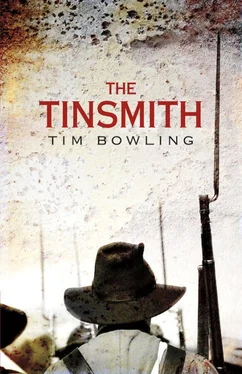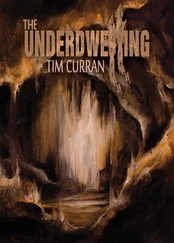Coldly and clearly, she said, “I’ll discuss with Mr. Richardson what is most important to us.”
Her husband’s relief was horrible. He slumped back against the ottoman and almost gasped, “Thank you, Mother.”
Edney heard his heartbeat pounding, saw it break the parlour’s sunlight into pieces. But it would not break her heart the same way. She almost smiled at the thought of the woman from Victoria, gifted in the byways between life and death, crossing the waters. At last the long suffering would be altered. At last she could mother the life she had not mothered well enough on earth. Then perhaps she could work on the future again. Not before.
Unable to read or sleep, the taste of opium in the air as palpable on his tongue as spit, Anson once again found himself on the wharf outside the Lansdowne house. He stood, his back to the China House and its long, soothing pipes, and listened to the plaintive crying of a seal pup. One of the Indians, so the boy Edward had told him, had caught the pup and was keeping it for a pet. Tied for days to a post near the Indian’s driftwood lean-to, eventually the seal would be tame enough to swim with the Indian children. That seemed innocent enough, almost cozily domestic, yet the seal’s cry, remarkably akin to a human baby’s, was disturbing. Anson moved on.
For several minutes he stood in the side yard of the Lansdowne house, trying to convince himself to return to bed. But the smoke on the air from an Indian’s fire further whet his old longing for opium and he began to walk downriver toward the China House.
The sound that stopped him came as less of a surprise than previously. He listened. It was the girl again. She had not taken his advice. When Anson had come upon her in the middle of the day while she was meant to be at her chores, she had been so rapt in her piano playing that interference seemed more than cruel; it was like turning off the sun. But for her sake he had urged her to be patient. If her father or uncle knew of her passion for the piano—he had not used the word to the child, though he had thought it—they might send the instrument back to Victoria. Ah, but the girl could no more resist the lure of the music than Anson could quell the past. Why not let her run the risk? It maddened him that the Lansdowne brothers had managed only to move the piano from the wharf to the nearby barn. He understood, of course, that they were busy men, but they clearly had no idea of how to treat a piano. Either that, or they simply didn’t care. Anson had thought that his heated exchange with Thomas Lansdowne out in the field would have resulted in the piano’s removal to the man’s house, not just to the nearest barn. Yes, it was maddening. But then, what of the Lansdownes did not madden him?
He walked to the barn and slid in through the thin gap in the doors. Straw chaff and dust on the planks and in the air almost made him cough. For a few seconds, as his eyes adjusted to the dimness, he saw only some worn tack—harnesses, bridles, saddles—hanging like strips of beef on a wall near the stable. Then he saw the girl. As before, she had not bothered to find a crate or anything else to sit on. In the fractured light falling through the beams, she stood, wreathed in the stench of manure, and played with unsophisticated energy the lovely Chopin music she had no business, but every right, to play.
Anson swallowed hard. More moving to him than her talent was the purity of her will. She must play. It wasn’t a question of rules and authority. It almost brought him to tears how little she seemed to be aware of her own vulnerability. But when she played, even he could recognize that, in some mysterious way, she was inviolate.
The wind shifted the thin starlight a little. Anson turned and coughed deep in his chest. Up from the river came the high-pitched cry of the seal pup, followed by another sound, not so high but just as tortured. Anson realized that it must be the pup’s mother swimming along the bank. Sadly, he turned back just in time to see the child collapse, one hand dragging across the keys before her body hit the ground.
“Louisa!”
He rushed forward and lifted her in his arms. She was sweating profusely, on fire, trembling. He staggered into the darkness and moved as rapidly as possible over the soft ground, the whole time thinking, What’s wrong with her, how can I stop it, how can I help her?
He laboured up the half-dozen steps and across the veranda, then banged the front door of the house open with his foot and shouted as he carried the girl into the parlour and laid her on the ottoman. From above him came quick footsteps that pattered along the ceiling and down the staircase.
“Light a lamp,” Anson ordered without looking up.
“What is it? What’s happened?” came Mary Lansdowne’s strained voice.
“It’s Louisa. She’s sick.”
“Louisa?”
“I need light,” Anson said, not waiting even to see his concern mirrored in another’s face. “And my case. In my room. On the dresser.”
The footsteps started again, climbed, and crossed the ceiling. They were like a pulse. The child moaned but did not open her eyes. In the darkness Anson could barely discern her features, but she was like a live coal to his touch.
There were more footsteps, then Mary’s voice and fluttering descent in the sizzling spread of light.
“Dear God, dear God, what’s happened to her?” Mary’s hand descended to Louisa’s brow. “Doctor? She’s burning with fever.”
“Yes.” Anson sent Mary away for a cool cloth. The girl’s pulse in his fingers was quick and slippery as rain.
Henry Lansdowne appeared. He stood still as a piling.
“I don’t understand. How is it that the child’s here, doctor?”
“The piano, of course. You and your brother wouldn’t take it into the house.”
Angrily, Anson grabbed his case and opened it. The oil light fell and splashed on his instruments.
“The piano?”
“She’s been coming out at night to play it. And obviously she hasn’t been looking after herself. Just look at how she’s dressed.”
Anson noted the man’s incomprehension: it was like a block of lead dropped on the floor. To keep himself from losing his temper completely, he said, “You’d better notify the child’s parents. The danger’s not immediate, but it is grave.”
“Oh, poor Edney,” said Mary Lansdowne and placed the cloth in Anson’s hand. “Hurry, Father. You must hurry.”
Once Henry Lansdowne had gone, his wife knelt beside Anson. Her voice was hushed, her white face framed by grey braids.
“Is it the scarlet fever, doctor?”
“I don’t believe so. But I can’t say with certainty.” He placed the cloth gently on the child’s brow and turned to the window at the sound of hooves striking the ground. At least the man appreciates the gravity, he thought.
Mary Lansdowne, however, took Anson’s turning for something more ominous.
“What do you suspect? Not…”
The child moaned, her eyes opened wide, with that seeing that sees more than the surroundings. Then the eyes flickered and shut again.
“It could be any number of illnesses.” Anson read the pale face for answers he suspected that time alone would provide. And yet, he had a suspicion. The high fever, the periodic moans, the look of delirium: these symptoms pointed to typhoid fever. If the girl, on waking, complained of headaches or stomach pain… yet she had been strong enough to come across the fields and slough to play the piano. The mother, no doubt, could provide some useful information.
Anson cursed beneath his breath. For now, there was little he could do. Treating disease, even during the war, had the effect of reminding him of how little his skill and knowledge mattered. At least a shotgun wound, for instance, required immediate action of a most absorbing kind. For the sake of his sanity, a man could not feel hopeless or powerless as he sawed through flesh into a bone.
Читать дальше












